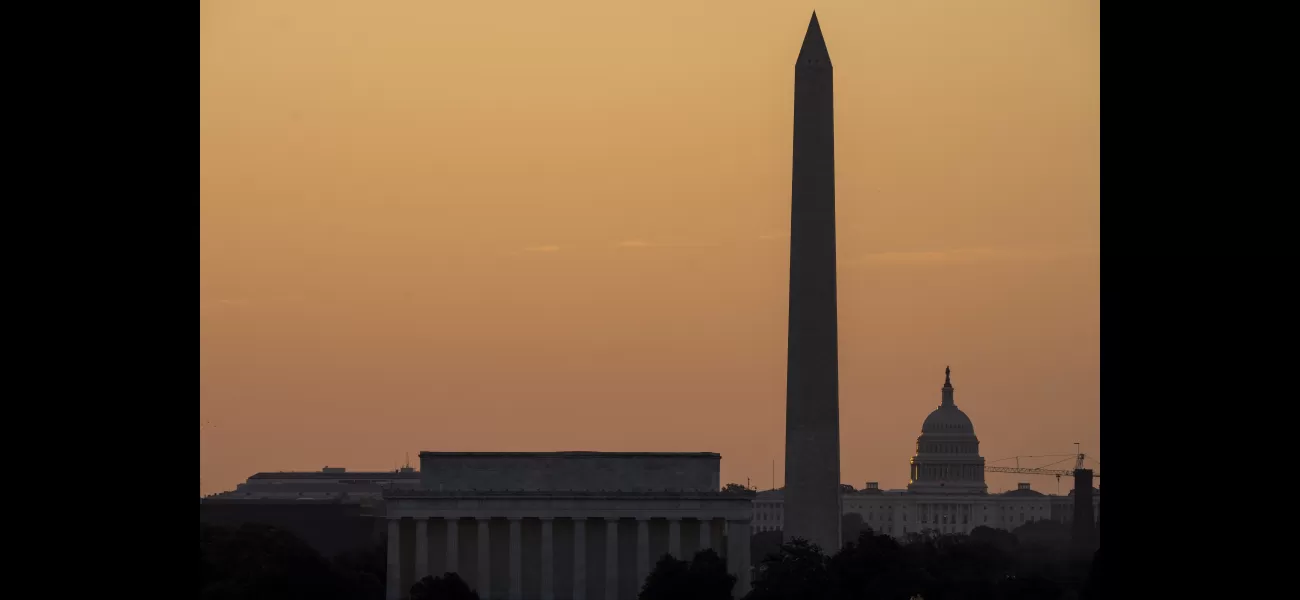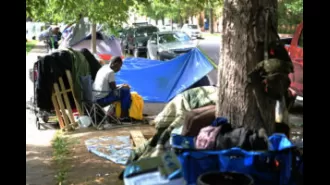US still struggling with intense heat and no sign of cooling down.
High temperatures have caused major disruptions in the lives of millions of people across the country.
June 22nd 2024.

A heat wave was raging across most of the United States on Friday, with weather experts predicting record-breaking temperatures and little relief for most areas through the weekend. The Midwest was expected to experience the steamiest conditions, with heat indexes expected to soar past 100 degrees Fahrenheit in parts of Ohio and Indiana. But the extreme temperatures were not limited to the Midwest, as heat and excessive heat warnings and advisories had also been issued in the northeast, mid-Atlantic, and some western states.
The scorching heat has already taken a toll, with two heat-related deaths reported in Idaho. Officials did not release any further information about the victims, but it serves as a sobering reminder of the dangers of extreme heat. Across the country, millions of people have been impacted by the intense temperatures, causing major disruptions to their daily lives.
In Michigan, where temperatures have been soaring, utility crews from multiple states have been working tirelessly to restore power to thousands of customers who were left without electricity after severe storms. The power outage has been particularly challenging for residents as they try to cope with the heat wave, which is expected to continue through Saturday. According to Brian Calka, DTE Energy's vice president of distribution operations, the goal is to have power restored for all customers by late Friday or early Saturday.
The utility crews have been working long shifts in difficult conditions, with temperatures reaching unbearable levels. They have been urged to take frequent breaks to stay safe while wearing heavy protective gear. Despite the challenges, they remain dedicated to their work, determined to restore power for those in need.
Among the residents impacted by the power outage is Jody DeRusha, who has lost all the food in her refrigerator and freezer due to the lack of electricity. She and her daughter have been sleeping in the basement to escape the stifling heat in their home. DeRusha has also been taking refuge in her car, enjoying the cool air conditioning and charging her phone.
The extreme temperatures have also affected outdoor activities, such as kayaking, with some businesses limiting trips to the cooler parts of the day. Chad Brennan, who operates a kayaking business in Ohio, knows firsthand the toll that the heat can take on the body. He prioritizes the safety and well-being of his customers and employees by adjusting their schedules during heat waves.
Scientists have attributed this month's unusually high temperatures to human-caused climate change, with a 35 times higher likelihood and 2.5 degrees Fahrenheit increase due to the burning of fossil fuels. Last year, the U.S. experienced the most heat waves since 1936, resulting in over 2,300 deaths according to data from the Centers for Disease Control and Prevention.
In addition to the excessive heat, some states have also been dealing with other weather-related issues. In northern Minnesota, heavy rain caused flooding, resulting in major road closures and extensive damage. The governor of Minnesota, Tim Walz, visited the affected areas and urged residents to document the damage in order to secure federal assistance.
The extreme heat has also led to the postponement or rescheduling of events, such as the "Blazing Paddles Paddlefest" in Cleveland, Ohio. Organizers made the difficult decision to cancel the event due to the dangerously high temperatures. While some relief is expected on Sunday, with temperatures dropping back to normal in the Great Lakes region, the heat wave continues to impact millions of people across the country.
The scorching heat has already taken a toll, with two heat-related deaths reported in Idaho. Officials did not release any further information about the victims, but it serves as a sobering reminder of the dangers of extreme heat. Across the country, millions of people have been impacted by the intense temperatures, causing major disruptions to their daily lives.
In Michigan, where temperatures have been soaring, utility crews from multiple states have been working tirelessly to restore power to thousands of customers who were left without electricity after severe storms. The power outage has been particularly challenging for residents as they try to cope with the heat wave, which is expected to continue through Saturday. According to Brian Calka, DTE Energy's vice president of distribution operations, the goal is to have power restored for all customers by late Friday or early Saturday.
The utility crews have been working long shifts in difficult conditions, with temperatures reaching unbearable levels. They have been urged to take frequent breaks to stay safe while wearing heavy protective gear. Despite the challenges, they remain dedicated to their work, determined to restore power for those in need.
Among the residents impacted by the power outage is Jody DeRusha, who has lost all the food in her refrigerator and freezer due to the lack of electricity. She and her daughter have been sleeping in the basement to escape the stifling heat in their home. DeRusha has also been taking refuge in her car, enjoying the cool air conditioning and charging her phone.
The extreme temperatures have also affected outdoor activities, such as kayaking, with some businesses limiting trips to the cooler parts of the day. Chad Brennan, who operates a kayaking business in Ohio, knows firsthand the toll that the heat can take on the body. He prioritizes the safety and well-being of his customers and employees by adjusting their schedules during heat waves.
Scientists have attributed this month's unusually high temperatures to human-caused climate change, with a 35 times higher likelihood and 2.5 degrees Fahrenheit increase due to the burning of fossil fuels. Last year, the U.S. experienced the most heat waves since 1936, resulting in over 2,300 deaths according to data from the Centers for Disease Control and Prevention.
In addition to the excessive heat, some states have also been dealing with other weather-related issues. In northern Minnesota, heavy rain caused flooding, resulting in major road closures and extensive damage. The governor of Minnesota, Tim Walz, visited the affected areas and urged residents to document the damage in order to secure federal assistance.
The extreme heat has also led to the postponement or rescheduling of events, such as the "Blazing Paddles Paddlefest" in Cleveland, Ohio. Organizers made the difficult decision to cancel the event due to the dangerously high temperatures. While some relief is expected on Sunday, with temperatures dropping back to normal in the Great Lakes region, the heat wave continues to impact millions of people across the country.
[This article has been trending online recently and has been generated with AI. Your feed is customized.]
[Generative AI is experimental.]
0
0
Submit Comment





